If you’re tired of commercial shampoos and want to switch to something without harsh chemicals, naturally condition hair instead! With simple ingredients like apple cider vinegar, coconut oil, yogurt, and bananas, these tips will naturally condition hair and are cost-effective and perfect for most hair types.
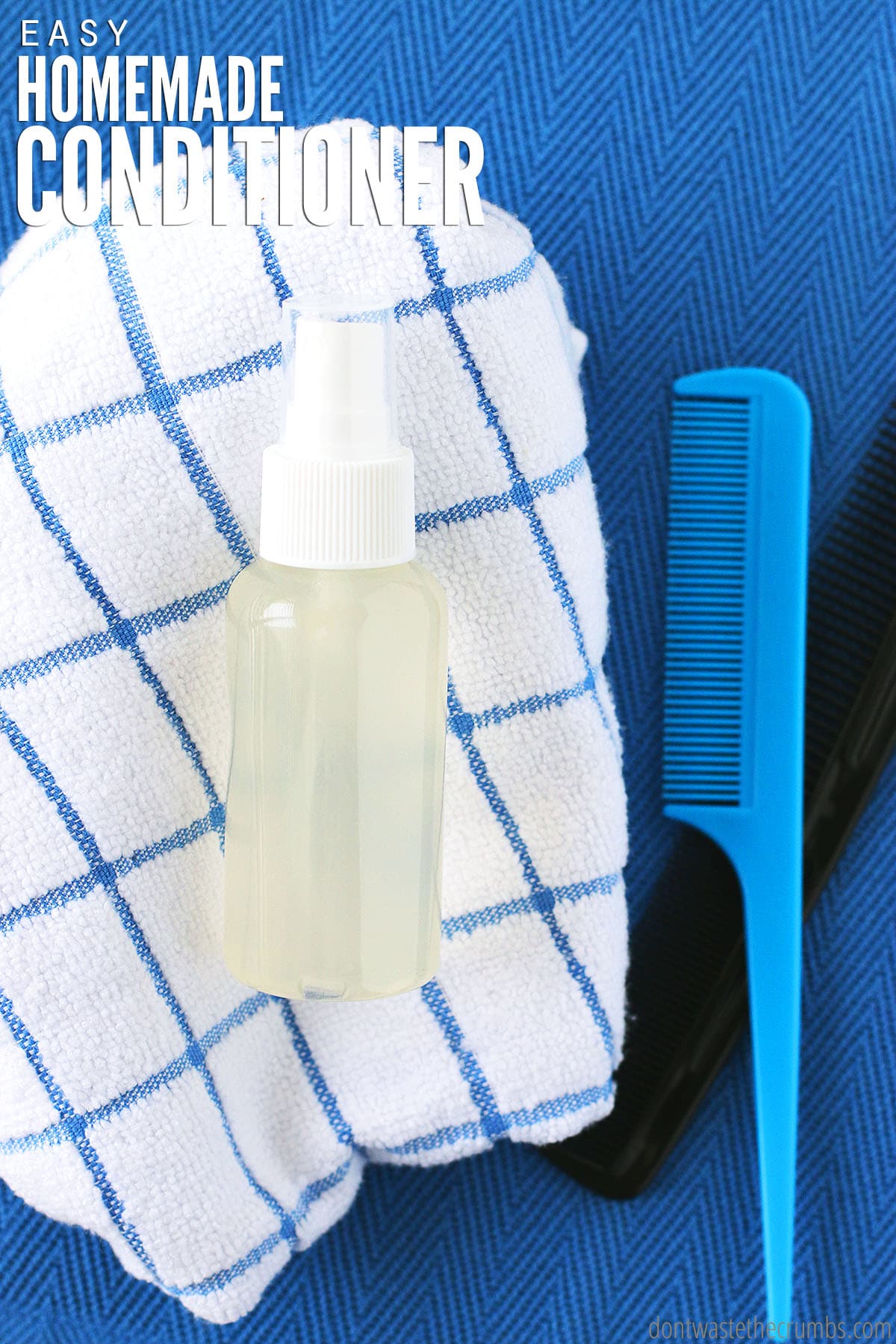
There are many ways you can naturally condition your hair without the use of store-bought natural hair conditioners. Bottled hair care products can often contain ingredients we don’t need even when they claim to be natural.
Instead, you can make your own hair conditioner! Adding a conditioning treatment to your hair care routine will protect damaged hair, reduce split ends, and stimulate hair growth.
I’ll explain the supplies needed to make a homemade conditioner. These recipes will make your hair hydrated, silky soft, and free from tangles!
HOW CONDITIONER WORKS
First, do you remember those old Pantene commercials?
You know, the ones that showed you what “normal” hair looked like under a microscope (a stick with tiny little sticks coming straight off the sides) and then a side-by-side to what hair looked like with Pantene conditioner (a smooth, straight stick without any other sticks coming off of it)?
For those who don’t remember the Pantene commercials, imagine two trees, each with bark. On one tree, the bark sticks up and out from the tree. That’s shampooed hair.
On the other tree, the bark lies flat. So flat that you can barely tell there’s even bark. That’s conditioned hair.
The purpose of the conditioner is to close the cuticles (bark) of the strand of hair (tree), making the cuticles lie down close to the strand and, in turn, create smooth, supple, and manageable hair.
NATURAL HAIR CONDITIONER OPTIONS
Regular conditioner relies on all sorts of weird and unnatural ingredients (such as sulfates, parabens, and phthalates) to do this, but fortunately, you can achieve soft, pretty hair naturally with a few items that you likely already have in your kitchen:
- Acids. Specifically apple cider vinegar, lemon juice, or whey.
- Oils. Nourishing natural oils like olive oil, coconut oil, vitamin E oil, jojoba oil, and argan oil are the most common. Butters like shea butter and cocoa butter work as well.
- Foods: Surprisingly a lot of everyday foods nourish the hair as well! Honey, Coconut Milk, Yogurt, and bananas can make your hair silky soft.
- Cold Water.
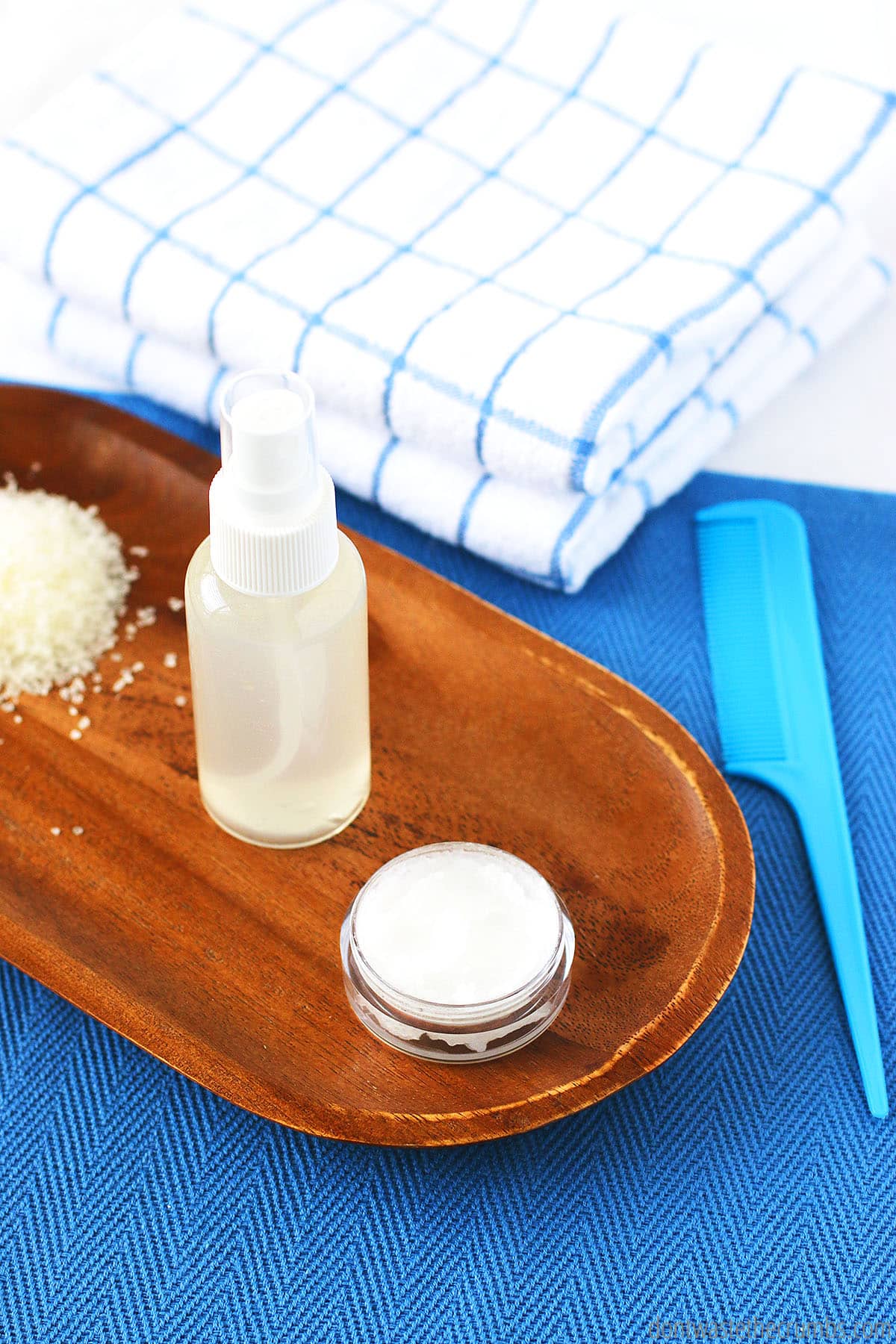
HOW DO I KNOW WHICH NATURAL CONDITIONER IS BEST FOR ME?
I’ve broken this potentially complicated question into three simple questions. Your answers to these questions determine which conditioner is best for you.
- What do you have on hand?
- What can you afford?
- What’s easiest for you?
There is no one-size-fits-all recipe for a homemade hair conditioner that will really truly fit 100% of everyone, so it boils down to having to test out a few options to see which works best for you. And if the above-mentioned oils, butters, and kitchen ingredients all do the same thing, then it just seems logical to start with what you already have, right?
Plus if you use an ingredient that has more than one purpose, you’re doubling your savings!
Lastly, and what I consider most important, what’s easiest for you? Adding a homemade conditioner to your routine does no good if it’s difficult to make. We want this natural living baby step to be effective, yes, but it needs to be easy in terms of practicality.
DIY CONDITIONER RECIPES
Hair conditioner is typically used after shampooing the hair. A few of these methods are for deep conditioning on dry hair before washing. Read the directions on each to see the correct order needed to wash and condition your hair.
You can use a no-shampoo method to wash your hair, or a natural shampoo without sulfites or parabens (this is the brand I like).

APPLE CIDER VINEGAR RINSE
SUPPLIES
- 2 Tbsp apple cider vinegar (how to make it at home)
- scant 16 oz water
- 16-ounce glass jar or spray bottle
METHOD
Combine the ingredients in a 16 oz glass jar and shake well to combine. To apply, shake well and pour directly on the hair after shampooing. Rinsing is optional.
RECIPE NOTES
You might need less or more acid, depending on your hair type. If your hair tends to be dry, rinse out the vinegar with cool water. You can also detangle with a slight amount of coconut oil on the ends of your hair.
Turn this simple conditioner into a nourishing conditioner by infusing the water with herbs like marshmallow root or flaxseed. Simply use the herb infusion technique described in this post and swap it in place of the plain water in this recipe.
This recipe can be used 2-3 times per week.
COCONUT MILK DIY HAIR CONDITIONER
SUPPLIES
- 1 Tbsp Coconut Milk
- 1 Tbsp shampoo
METHOD
Mix Coconut Milk and shampoo in a small bowl. Apply to wet hair as you would plain shampoo. Work into the hair and massage into the scalp. Rinse with warm or cool water. Condition with an apple cider vinegar rinse or other conditioner if desired. If needed, apply ½ Tbsp of coconut milk to your hair as a leave-in conditioner.
RECIPE NOTES
Coconut milk is a natural conditioner for hair that helps to soften and smooths the hair while reducing itchiness or dryness on the scalp. Using a natural shampoo like Kristin Ess will help clean and condition the hair naturally.
This recipe can be used 2-3 times per week.
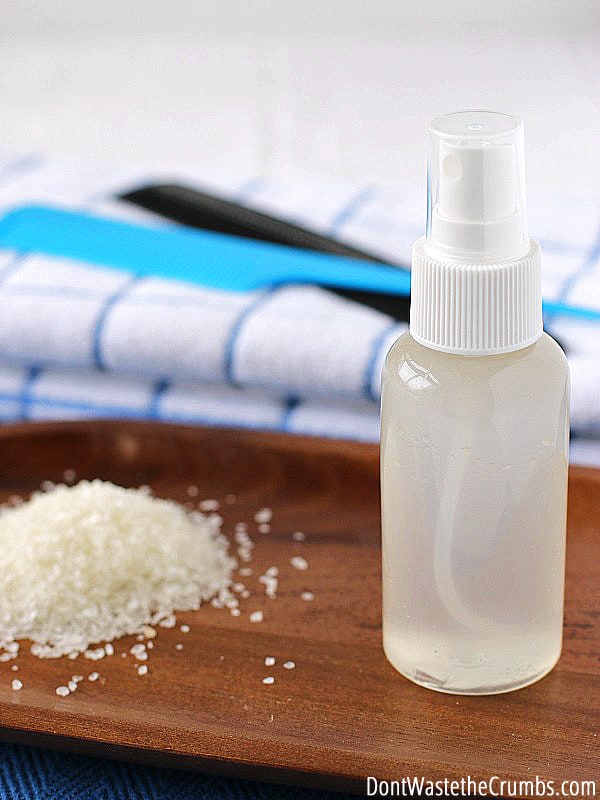
Homemade Hair Conditioner with Banana
SUPPLIES
- 1 ripe banana
- 2 Tbsp olive oil
- 1 Tbsp honey
- Shower cap (optional)
METHOD
Mash the banana in a small bowl. Mix in olive oil and honey and stir until smooth. Apply to your hair, working in sections if needed, until everything is covered. Allow to rest for 20-30 minutes. Use a shower cap if desired to prevent drips. Rinse with cool water and a mild shampoo.
RECIPE NOTES
Bananas will help make your hair shinier and give hair extra bounce. The olive oil deeply moisturizes the hair and scalp.
This recipe can be used once a week.
ALOE VERA BANANA HAIR CONDITIONER
SUPPLIES
- 2 Tbsp aloe vera gel
- 1 ripe banana
METHOD
Mix aloe vera and mashed banana until smooth. Apply to clean damp hair. Massage deeply into the scalp. Let rest for five minutes. Rinse with warm water.
RECIPE NOTES
Aloe vera promotes hair growth and strengthens your hair. It soothes the scalp, adding necessary moisture without being greasy. Bananas help make hair shiny and soft and smooth curls that tend to frizz.
This recipe can be used once a week.
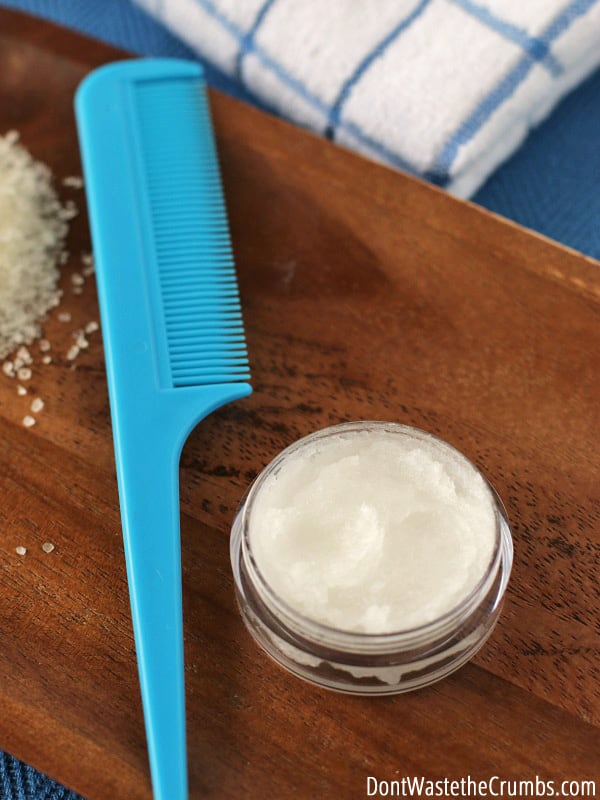
Natural Conditioner with YOGURT
SUPPLIES
- 1 egg
- 1 tsp coconut oil, melted
- 2 Tbsp Yogurt
- Shower cap
METHOD
Whisk ingredients together in a small bowl until smooth. Apply to damp hair and massage into the scalp. Cover with a shower cap and allow to rest for 15 minutes. Wash off using cold water.
RECIPE NOTES
Yogurt rejuvenates rough hair and helps reduce hair loss. The coconut oil works as a deep conditioning treatment for dry hair.
This recipe can be used every two weeks.
Honey Olive Oil Hair Mask
SUPPLIES
- 2 Tbsp honey
- 4 Tbsp olive oil
- Shower cap (optional)
METHOD
Mix honey and olive oil in a small bowl. Apply to hair, working in sections if needed, until fully masked in honey mixture. Allow to rest on your hair for 20-30 minutes. Use a shower cap if desired to avoid the mask from dripping on you. Rinse with warm water and a mild shampoo.
RECIPE NOTES
This recipe is best as a deep conditioner to hydrate and nourish your hair. It works to help prevent dandruff as well as it moisturizes the scalp.
This recipe can be used 2-4 times per month.
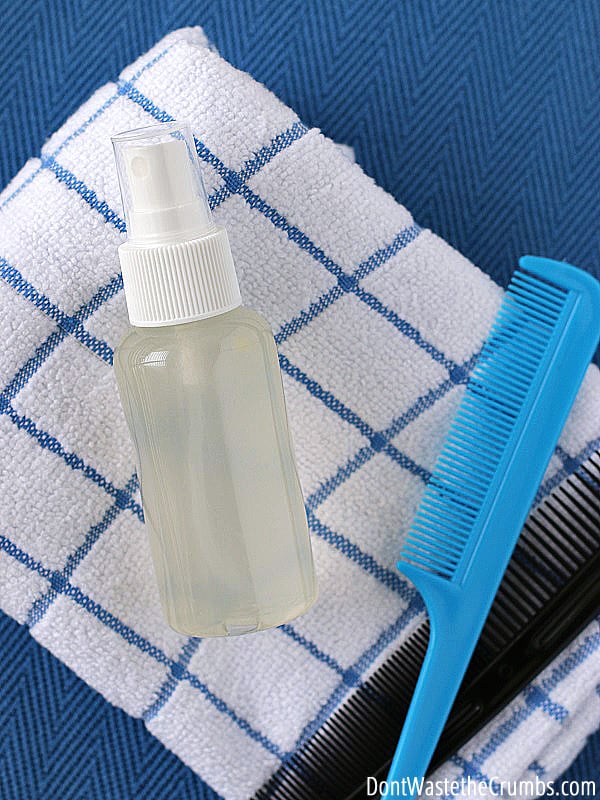
FAQs to Naturally Condition Hair
Can I add essential oils to homemade conditioner?
Absolutely! Some great options are lemon, lavender, rosemary, tea tree, sandalwood, peppermint, and bergamot!
How can I customize DIY hair conditioner?
If you have dry or frizzy hair, add argan oil to any recipe to make it more nourishing. If you have a dry scalp, add tea tree essential oil to help combat dryness. On the other hand, if you have oily hair, you can leave out the oils and only use apple cider vinegar and water. If you want a sweeter-smelling conditioner, add lavender essential oil.
Can I make a homemade leave-in conditioner with this recipe?
Absolutely! You can add some aloe vera as a moisturizing agent to keep your hair follicles conditioned for longer!
What types of hair can use this conditioner?
Any hair type can benefit from DIY conditioner:
Curly hair
Oily hair
Fine hair
Dull hair
Straight hair
Dry hair
Naturally Condition Hair
There you have it! Now you have everything you need to naturally condition hair! Say goodbye to toxic ingredients and hello to a DIY hair conditioner that will give you the smooth, healthy hair you’ve always dreamed of! If you try this recipe, let me know what you think in the comments!
More Natural Hair Care Tutorials
- How to Wash Your Hair Without Shampoo
- Simple DIY Liquid Herbal Shampoo
- DIY Homemade Herbal Shampoo Bars
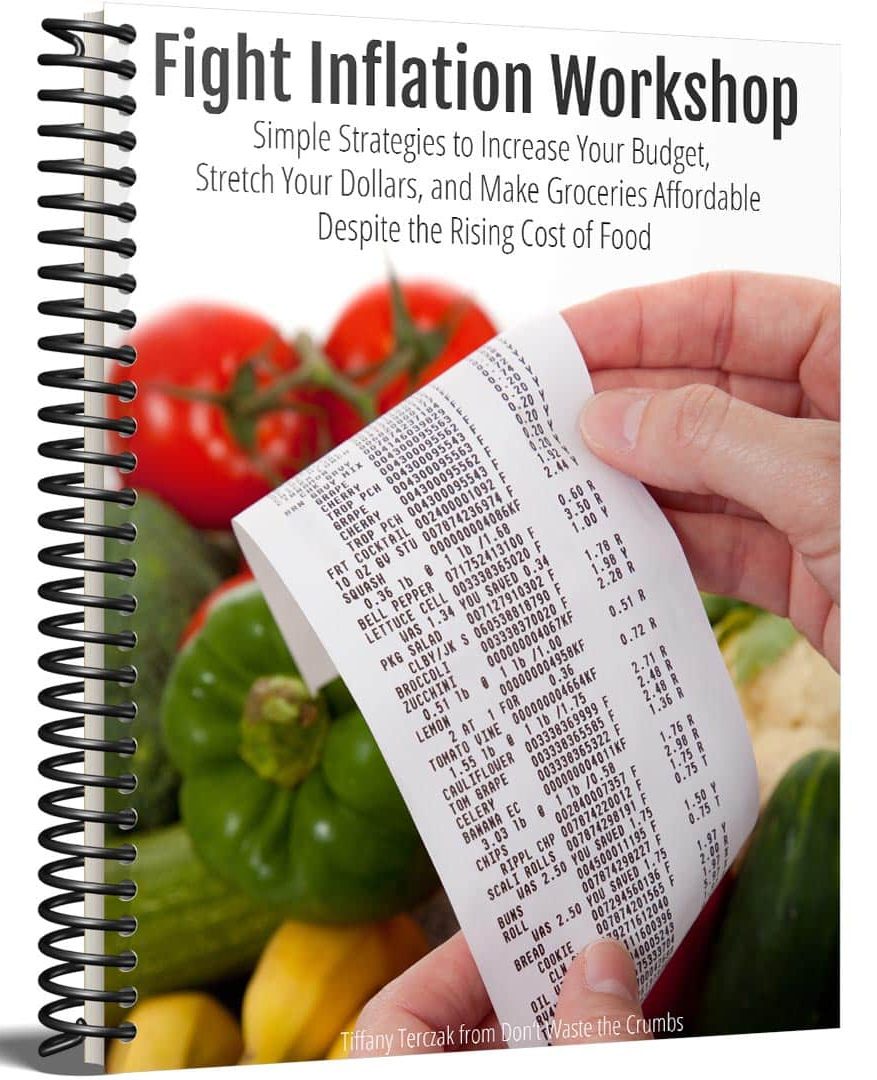

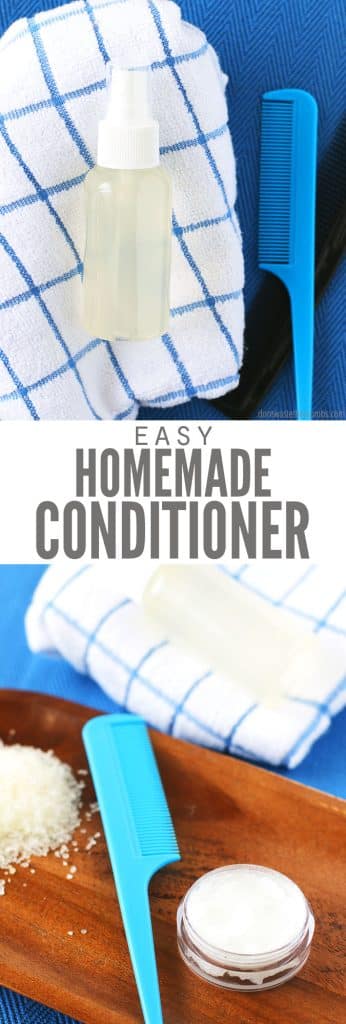
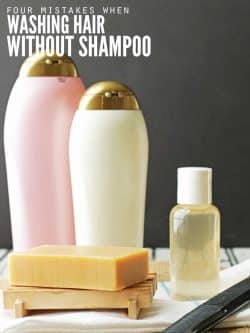
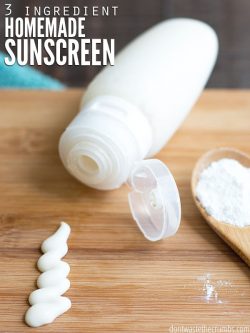



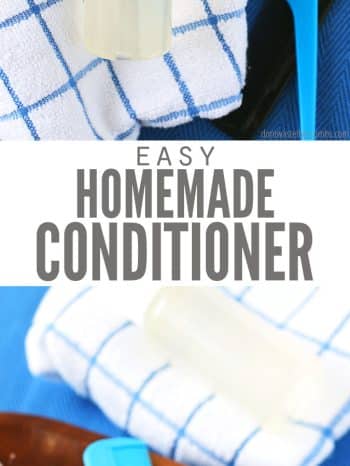
Before you decide to present yourself as a know it all by writing an article using fancy words like “cuticle” you really ought to first learn the meaning of the word.
Hi Lars!
Based on the tree bark analogy used in the post, the word ‘cuticle,’ is the outermost part of the shaft of hair. The official definition of a hair ‘cuticle’ is exactly that: According to the NCBI, (National Center for Biotechnology Information) a hair cuticle is a layer of dead cells that act as a protective layer around the hair strand. It protects the hair strand from damage, and creates shine.
So, I guess I’m just not sure what you mean? We did correctly refer to the hair ‘cuticle,’ in this post. Hope this helps!!!!
I am very excited to try this out and have already ordered the Bend goat milk soap and other products. I will stick with it a couple of weeks, as you and others have said it takes time for the scalp and body to adjust. Honestly, for the cost, body benefit, and overall ease, I am willing to stick with it until I see positive results.
I have textured, curly hair, and I have spent YEARS attempting to understand and care for my hair. I feel that I have always been just on the precipice of having great hair…but I fall short of the joy–every single day! My hair air dries and stops moving. I have attempted thousands of dollars of products to way down and condition my hair, OR cleanse and gently moisturize my hair, OR seal my curls, etc. Such temporary satisfaction. I want now to just simplify and experience my hair in its natural state, clean and without all the chemicals.
I am excited!
Hi Nicole,
We hope this works out for you! Check back in and let us know. 🙂
I’m not sure where the ACTUAL measurements are for this recipe. How am I missing this??
It’s in the section titled “DIY Homemade Conditioner.” 😉
Hi,
I would like to stop using store bought shampoo and conditioner. I have brown hair, which I never dyed, with strands of gray hair.
I was wondering, do these recommendations—baking soda, apple cider, chamomile tea, etc—change the hair color? I really don’t want to change my hair color (even naturally). (One of the reasons is that I don’t want to deal with roots and different layers of color in my hair!)
I’d like to use natural products to wash or condition my hair, but without risking changing my hair color. Any advice?
Thanks!
Hi Barbara! None of these options changed my hair color EXCEPT maybe slightly the ACV during summer months, but we spend a lot of time at the pool here in Georgia!
Have you tried adding anything to the apple cider vinegar conditioner for added benefits? Like an oil or something?
Hi!
After reading a number of your pages, I decided to try the natural method!
Shower 1: Bend unscented goat milk soap and apple cider vinegar > really dry hair
Shower 2: Goat milk soap and coconut oil after the shower > looks like I put bear grease in my hair (;
Shower 3: Just goat milk soap > kinda greasy hair, not soft
Shower 4: Advice please? (:
Thank you!
Hello,
I really enjoyed reading through your experiments and how they worked out. It really helped make me understand how to start out with a homemade conditioner. You see, my hair is a curly mess and every day I have more and more knots. My mother and I have tried various store bought conditioners but none seem to do the trick since my hair always feels rough and scratchy after we use the conditioners. So I decided to look up some homemade conditioner recipes to see how it would work out. (and to try something new.) After looking through your website I really wanted to give this recipe a go but you see, it might be because I’m looking in the wrong places or I might have accidentally looked over it but I can’t seem to find the amounts I should use with the different oils and other contents. So if someone could point me in the right direction or has any advise that you think will work I would be very grateful.
I wonder if kombucha that has turned to vinegar would work as well?